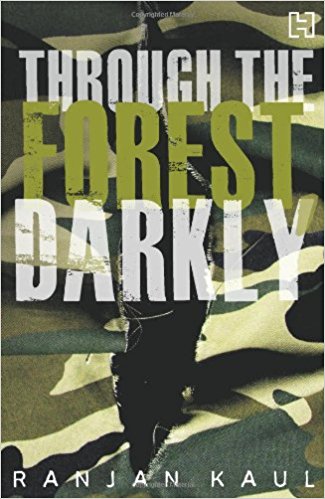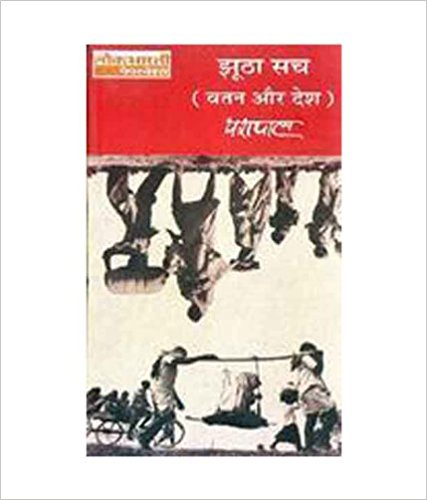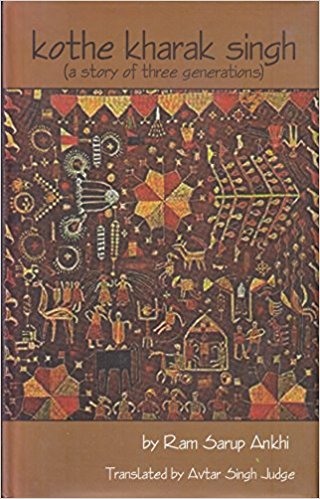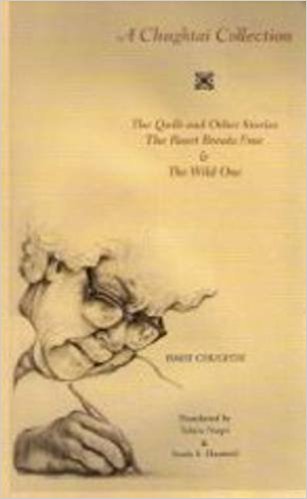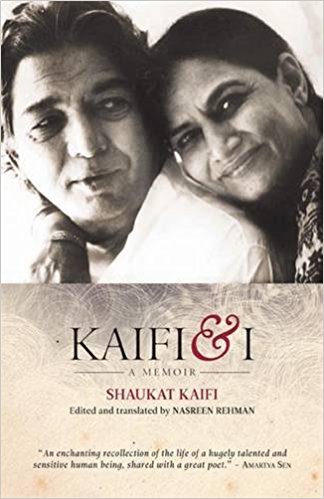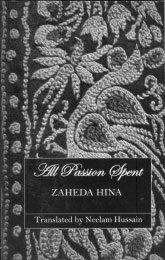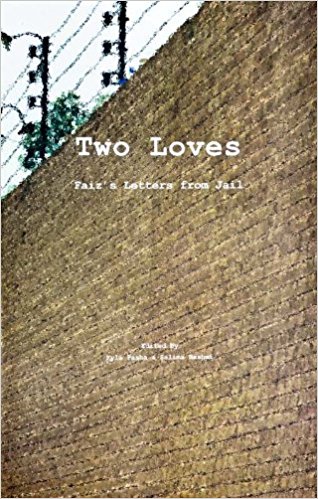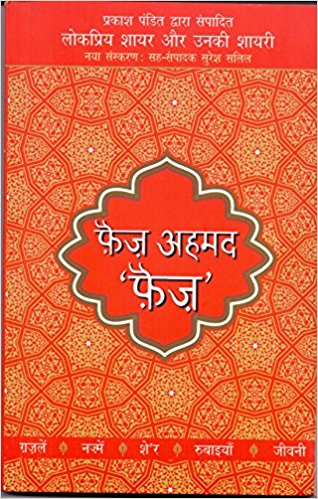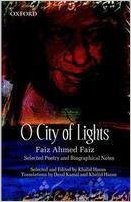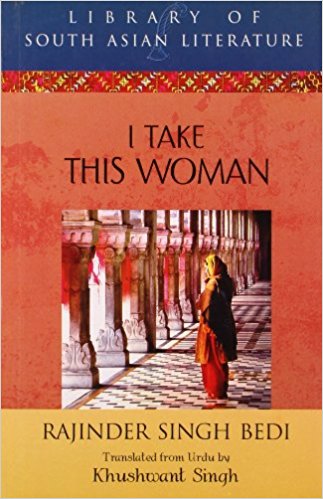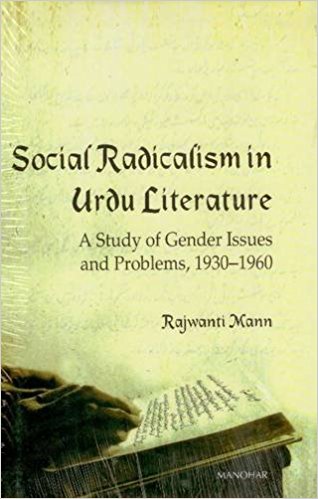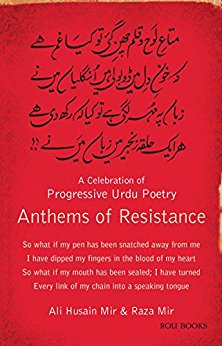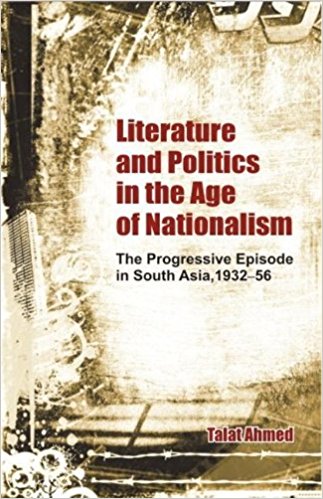Ranjan Kaul’s debut novel presents a dark view of relationships, institutions and struggles in contemporary India. In fact, the most striking feature of the novel is its current register of the several Indias that exist simultaneously with each other.
Archives
April 2011 . VOLUME 35, NUMBER 4Bhagabati Charan Galpamala (Bhagabati Charans Short Stories) is not the first anthology of the short stories of Bhagabati Charan Panigrahi (190843), the founder of Nabajuga Sahitya Samsad (Literary Society of the New Era), the Odia version of the Progressive Writers Movement which had its first convention at Cuttack between 29 November and 6 December 1935…
Bhisham Sahni had once said, The only novel about Partition is Yashpals Jhootha Sach; everything else is merely a footnote. Surprisingly, however, it has taken almost fifty years for its English translation to come out. Jhootha Sach was originally published in Hindi in two volumes in 1958 and 1960…
There is a view supported by, among others, Salman Rushdie and Amit Chaudhuri that Indian Writing in English is superior to literature produced in regional languages. Obviously this opinion fails to take into account the variety, vigour and sincerity that marks writing in various Indian languages. Punjabi fiction being a case in point.
The present volume is a collection of fifteen short stories and two novellas. Ismat Chughtais name should be familiar to anyone who has even a slight interest in Urdu literature and drama. She opened new avenues for women writers in Urdu fiction. According to Tahira Naqvi, Ismat was an unselfconscious feminist (who) was doing…
Before getting into the complexities of analysing or assessing this occultly romantic yarn which self-confessedly was inspired by Russian Jewish writer Anskys (also An-sky, a pseudonym for Shloyme Zanvl Rappoport) play The Dybukk dealing with spirits, it is important to take into consideration the psychology of the novelist who through most part of his life struggled (successfully, though) to traverse the potholed path of narrative diversity that is latent between serious and the not-too-serious, the literary and the populist because this is the key to Krishan Chanders oeuvre which is considerable, and his ideology thats inherently contradictory. He has to his credit 20 novels, 30 collections of short stories, countless radio plays, and several travelogues…
Selected Short Stories and Plays portrays an era when Indian society was coming to terms with the idea of independence and democracy. It comprises sixteen short stories and seven plays, each depicting the struggle of the characters within, in the scheme of circumstances being paved for development in the modern age….
2011
It was all alone that Id started towards thegoalPeople kept pouring in and it swelled into acaravan.She has lived through turbulent times. She has seen the country fight for and secure Independence. She was associated with the Progressive Writers Movement (founded in 1936) and the Indian Peoples Theatre Association (set up in 1942)…
Anyone possessing even a passing familiarity with the Progressive Writers Movement would know Syed Sajjad ZaheerBannay bhai. Zaheer never attained the dizzying heights of fame and acclaim accorded to say, Faiz but that is probably the way he would have preferred it.Bannay bhai was the driving spirit behind the formation of the All India Progressive Writers Association…
All Passion Spent was launched recently in New Delhi by Zubaan in the author’s presence. The exchange with the author that followed was thought provoking and moving, not least because Zaheda Hina chose to speak in Urdu/ Hindustani in response to questions, after a brief reading from the novel…
The All India Progressive Writers Movement (AIPWM) has been one of most dominant, indigenous, 20th century countrywide movements taking in its sweep most writers of vernacular literature. Initiated in British India, it has the distinction of being the only literary movement aimed at propagating political, Marxist socialist principles…
2011
Zahida Zaidi was a poet, dramatist, translator and critic whose literary contributions belong to the realms of both Urdu and English literatures. She was a prolific writer passionately concerned with the pulse of the times so one comes across varied political, cultural and social themes in her work. She was innovative too in her use of various literary forms…
I run my hand over this large volume with a pictorial cover of a brown prison wall, pierced diagonally with barbed wire, a patch of a sky, a few forlorn trees standing behind parallel search lights and a sentry standing erect before a guard room. Inside the volume is the story of two loves; Faiz Ahmed Faizs letters written…
The five almost undisputed leaders of modern Urdu poetry, chronologically by year of their of birth, are N.M. Rashid (1910-1975), Faiz Ahmed Faiz (1911-1984), Meeraji (1912-1949), Majeed Amjad (1914-1974) and Akhtarul Iman (1915-1996). Of these poets, only Faiz belonged and remained loyal to the Progressive Writers Movement until his death…
2011
Khalid Hasan, the one-time compatriot and Press Secretary to Zulfiqar Ali Bhutto and journalist par excellence is well known for his literary writings. For years the life and times of Madame Noor Jehan have been celebrated in his writings. He has translated several titans of Urdu literature including Manto, Abbas, and Faiz…
Rajinder Singh Bedi (19151984) began his working life as a postal clerk but soon carved a place for himself in the canon of modern Urdu short stories with his very first collection, DanaoDam, published in 1940. Details of everyday life, no matter how small, found a place in his stories and became reflections of a larger social reality…
Literature is not only a mirror but also a major source of inspiration. With the formation of the Progressive Writers Movement in India in 1936 a radical shift emerged in the consciousness of Urdu writers. This book examines the role of progressive writing in the history of India. The Russian revolution was looked at with awe and respect and Marxist ideology recognized…
There is one kind of lament about Indian politics that has become commonplace: politics has become characterized only by corruption, selfindulgence, and venality. In fact, as this review is being written, India seems racked with some of the worst scandals at the highest levels of government since the infamous Bofors scandal of the 1980s…
2017
This like all books on the Progressive Writers Movement is to be heartily welcomed as an attempt to redress a very serious historical neglect. To subtitle it an episode is however to acknowledge and reinforce the overarching and unquestioned authority of the national question over all other approaches and framings of this period…

